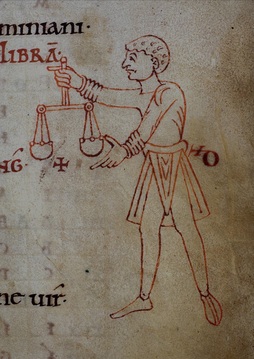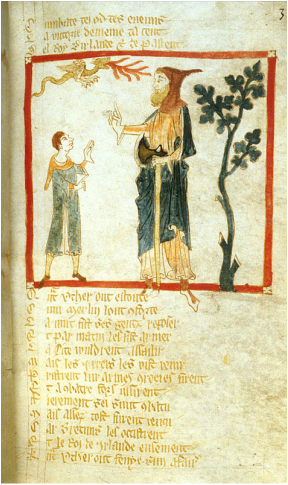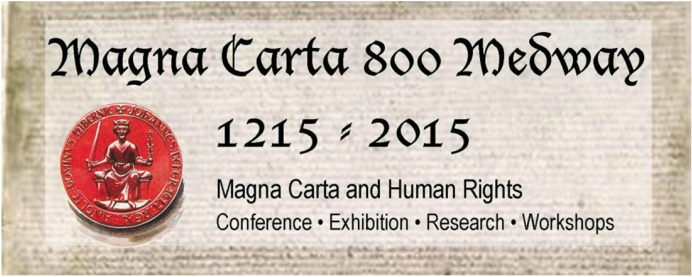Maggie Kneen - or, as the Vikings would have known her, Margaret of the Clan of the Wolf - talks to me about her medieval artwork and her DNA. © Copyright Maggie Kneen. This was originally designed for Maggie's Old English Tarot. © Copyright Maggie Kneen. This was originally designed for Maggie's Old English Tarot. Now, beloved, calm yourselves. This week's monastic missive is nothing to do with those horrid heathens who gave Alfred the Great and Ethelred the Unready so much grief. And, really! I know that you’re aware of my rather delicate, monkish constitution, but you simply must resist the notion that I’m going to run from this Viking squealing like a piglet. No, beloved. I want you to follow my example of godly forbearance and forgiveness and welcome my Viking guest. OK, this one isn’t your average, brutal, axe-wielding slayer of monks. No, indeed. In fact, Maggie Kneen is, it would appear, a very friendly Viking. What’s more, she’s a brilliant artist, having both written and illustrated children’s literature and, more recently, turned her rather gifted hand to medieval architectural drawings. Now what could be less Viking than that?
2 Comments
This past week I’ve been translating a set of laws from the year 600, the kind of thing the Anglo-Saxon Monk must do for his penance. Mind you, Æthelberht’s Code, as these laws are now known, has certainly thrown up some interesting stuff.
You see, King Æthelberht I of Kent – let’s call him Bert, for short – ruled over his south-eastern region of England at a time when the peoples of that land had barely cut their Christian teeth. In fact, it was only in 597, about three years before Bert had his lawcode written, that the Roman missionary Augustine arrived, with his commission from Pope Gregory the Great to convert the heathen English folk. And, low and behold, Bert was pretty much the first of them to convert. Augustine probably didn’t have to try too hard, mind you, as Bert’s wife Queen Bertha (born c. 539) was already a Christian, in fact had only agreed to marry Bert if he allowed her to continue to practice her religion on arriving from her homeland in Francia. So it would seem that she had some influence over Bert, and who’s to know how far her preaching and ideas of Christian forgiveness affected his handling of his subjects. And let me tell you, beloved readers, if the contents of his law are anything to go by, Bert’s people most definitely needed reigning in. The way I see it is that this newly baptized king was trying his damndest to get his people to give up the idea of feuding as the only way to settle their differences. And I’m sure you can guess what England was like at the start of the seventh century. The old Germanic ways were still well and truly ingrained. You know: tit for tat, you kill my relative, and I’ll kill yours, a never ending cycle of bloody vengeance, that sort of thing. (Just read Beowulf to get the gist.) What Bert did, however, was introduce the idea of financial compensation as recompense for acts of violence against the person: a way of terminating a feuding quarrel, and thus of preventing the typical testeronic escalations of death and destruction. And you know what, if you played your hand well, you could make quite a few shillings and sceattas from your attacker. So let’s imagine you’re a free man who’s been in a bit of a quarrel with a neighbour, and you’ve humiliated him in some way – maybe you’ve told him he smells like a pig, and that his wife is a pig – and so he seeks revenge. Consequently, he breaks into your house, knocks your screaming wife over the head, binds you up, kills your domestic servant who tries to come to your aid, nicks a few of your nice things, and then proceeds to bash you about a bit, sword in hand. But there’s no need to get mad – or even. Once he’s gone, wake your wife and get her to untie you, and then run to the head men of your village in order to let them know what’s transpired. They’ll grab your nasty neighbour, before he flees and becomes an outlaw, give him some sort of trial, and then all you need to do is simply stand back, get your counting stones out, and watch all those sceattas and shillings mount up! The Anglo-Saxon Monk meets a Master of Merlin, Ivana Radman, who lets us into a few secrets about Colin Morgan's dragon speak ...
The Anglo-Saxon Monk herby alerts you to two upcoming events: one obviously medieval and the other by a medievalist arachnophile! "The Magna Carta can be regarded as a root document for our human and civil rights and its relevance continues to this day."Dr Ingrid van Dooren, whom I met at Rochester Cathedral whilst giving a talk on the Textus Roffensis, is organizing an educational conference, exhibition and a series of workshops about the 1215 Magna Carta, all of which explore the connections between this most famous of medieval documents and today's human rights issues. "George is an unusual spider. Born with the ability to control human thoughts, he has a unique insight into the human psyche. And he doesn’t like what he sees. It’s time to deal with the problem."My very good friend Hannah Kate (also known as Dr Hannah Priest, researcher of medieval popular romance, contemporary genre fiction, horror film and monsters) has her publisher's hat on in January, and so is launching her new book for Hic Dragones.
The book is the second novel by Toby Stone, and if his first is anything to go by we are in for an intense, disturbing and mad genius treat. I'm not terribly fond of arachnids (something to do with my mother screaming at them if they dared to crawl across the floor), but I will most definitely be availing myself of a copy of Psychic Spiders, hoping it doesn't terrify me as much as Shelob. |
Details
|





